"Welcome to the Cemetery of the Living Dead"
A famed mathematician once warned America could turn into a dictatorship without breaking a single law. These men’s stories may prove him right.
Editor’s Note: Teacher working conditions are student learning conditions. Right now, thousands of classrooms are missing the essentials—and we can change that in minutes. More than 5,900 teachers are still waiting for school supplies, and the school year has already begun in some parts of the country. Every time you help a teacher, you help every student in that classroom.
We’ve made it easy to help with our new Teacher’s Aid tool.
Click here to find a teacher, visit their Amazon wishlist, add a few items to your cart, and make their day.
And now, on to our feature story:
Leonardo José Colmenares Solórzano, 31, recounts guards stomping on his hands. Dirty water being poured into his ears. And being forced to lick the backs of other inmates.
Neiyerver Adrián León Rengel, 27, says that guards forced inmates to kneel with their hands behind their heads and then “stood on our legs until we couldn’t feel them anymore.”
Arturo Suárez, 34, remembers the “blood strike”: when inmates, in desperation, cut their arms with broken pipes and left messages smeared on the walls. “SOS,” they wrote, in blood.
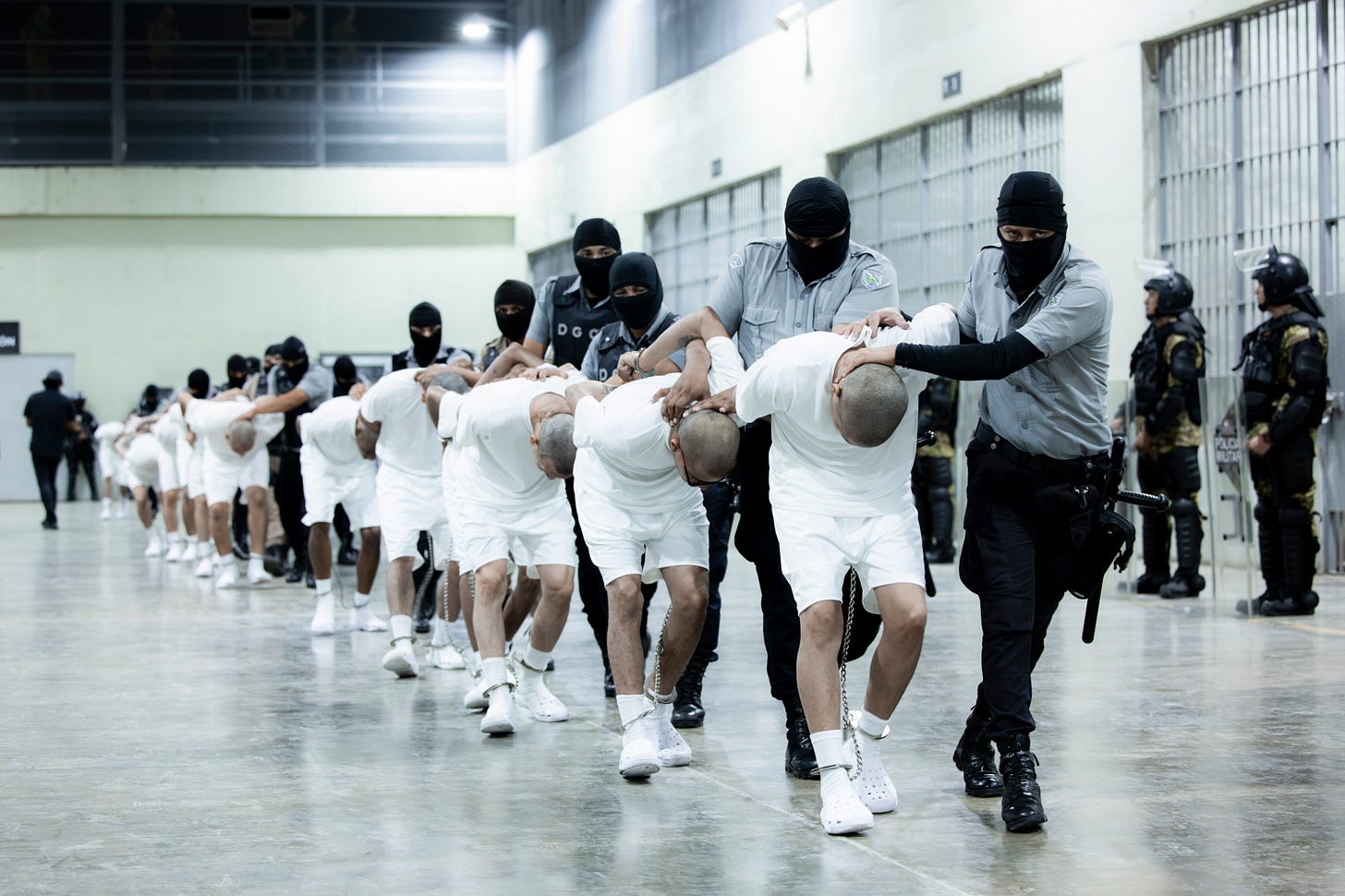
The 252 Venezuelans who were deported from the United States to El Salvador, and then detained at the notorious Salvadoran prison known as CECOT, were the subject of intense public debate this spring.
For months, they were talked about but never heard from: after all, at CECOT, they weren’t allowed to call their families, or their lawyers, or anyone. They were barely able to see sunlight.
But now the men have been released, following a prisoner exchange with Venezuela last month, and their stories are starting to emerge, through interviews with The Bulwark, The Guardian, The Washington Post, The Texas Tribune, Mother Jones, and other news outlets. What they have to say is harrowing.
The former prisoners tell stories of being kept in crowded cells, sleeping in metal beds without sheets (with the lights turned on 24 hours a day), and going to the bathroom without privacy. They talk about being taken to “La Isla,” the windowless cell where the most sadistic punishments were carried out.
They recall cruelty at every turn. Suárez says that at one point, while handcuffed, he asked a guard for help because his glasses were slipping off his face. “He told me to shut up, punched me [in the face] and broke my glasses,” Suárez says.
Andry Hernández alleges that when he tried to soothe a throbbing headache by bathing, guards took him to “La Isla” and forced him to perform oral sex on them.
Julio Fernández Sánchez recalls watching as a diabetic prisoner started convulsing after being given the wrong insulin. Guards waited almost half an hour before going to get help.
“We got a beating for breakfast. We got a beating for lunch. We got a beating for dinner,” Suarez says.
Horror stories like these are, unfortunately, all too common in countries like El Salvador that are home to brutal prison systems. The difference in this case is that the actions described above took place because of the US government, which deported the men to El Salvador specifically so they could be held at CECOT, despite the fact that most of them had no criminal records, many of them had entered the US legally, none were sentenced to prison by an American court, and many didn’t even receive due process to be deported from the United States.
This treatment was carried out by another country, but in effect, it happened in our name, at our leaders’ behest. We were the ones that sent them there.
Kurt Gödel may not be a household name today, but he was an intellect who commanded universal respect from some of the smartest minds of the 20th century.
At Princeton’s Institute for Advanced Study, Gödel was “the only one of our colleagues who walked and talked on equal terms with Einstein,” one academic said. (Albert Einstein himself admitted that he would come to work at the institute merely “to have the privilege of walking home with Gödel.”) A towering mathematician, Gödel has often been called the greatest logician since Aristotle.
In 1947, Gödel — who left Austria at the dawn of World War II — was sitting for his US citizenship test. During the examination, he is said to have told the judge that, while studying American government in preparation for the test, he had discovered an “inner contradiction” in the US Constitution that would enable America to be converted into a dictatorship without breaking a single law.
The judge didn’t follow up; Gödel never disclosed his finding. Generations of legal observers have tried to discover the contradiction, known as “Gödel’s loophole,” without success; the scholar John Nowak has called it “one of the great unsolved problems of constitutional law.” What was the flaw in logic that this famed logician found in our system of government?
A few months ago, the New York Times columnist Ross Douthat speculated that perhaps the Venezuelans detained at CECOT were Gödel’s loophole come to life. At the time, the Trump administration was representing in court that it had no power to return any of the detainees because they were in the custody of a foreign country. Douthat noted that a president, by that logic, could deport their political enemies and disclaim any responsibility (or ability) to get them back. (Indeed, Trump had mused about sending US citizens to CECOT.)
Before long, the Trump administration started to change its tune. In April, the Supreme Court ordered the administration to return perhaps the best-known of the men being kept at CECOT, Kilmar Abrego Garcia. The administration dragged its feet in complying with the order — but eventually it did so, returning Abrego in June and beginning a criminal prosecution of him for alien smuggling and conspiracy, charges that Abrego denies. By the next month, the rest of the men sent by the US were released from CECOT as well. Perhaps a fear of political consequences persuaded the administration to work for their release; maybe the administration thought it was poised for subsequent court losses.
But some combination of political and legal systems factors succeeded in freeing the Venezuelan men after 125 days. For those who believe in due process, this was an encouraging result. But this story is not over. The next question is whether there be any accountability or consequences for what was done to these 252 men while they were imprisoned.
This is important not just for the 252 men, but for all of us. What happens next in these cases will tell us whether this loophole remains open, whether it is, in fact, legal for the US government to summarily deport people without due process, and then choose whether or not to retrieve them.
The first legal clash to watch comes from Neiyerver Adrián León Rengel, who has filed an administrative complaint against the Department of Homeland Security, with many of the same chilling allegations as the other Venezuelans.
“While at CECOT, Rengel endured physical, verbal, and psychological abuse,” the complaint says. “He was beaten in his chest and stomach by guards, who used fists and batons to inflict pain. On one occasion, he was taken to an area of the prison without cameras, where guards routinely brought detainees to assault them without leaving a video record. There, Rengel was viciously beaten.”
Rengel says the US government bears responsibility for the “psychological and emotional injuries” he sustained at CECOT. He is seeking $1.3 million in damages as a result.
This is not a formal lawsuit, although it could become one depending on how the government responds. Other immigrant rights groups have also said they are planning lawsuits of their own.
Meanwhile, according to another legal filing, some of the Venezuelan men plan to bring cases trying to return to the lives they built in the US.
Litigation in these cases could bring us more transparency into the details behind the US–Salvadoran arrangement that sent the men to CECOT in the first place. Legally, the crucial question is whether the US maintained some form of custody over the detainees while they were at CECOT. The Trump administration insists that it did not, and that all decisions (including the ultimate decision to release the prisoners) were made by the Salvadoran government.
However, in a July filing, the migrants cited a statement from the Salvadoran government that suggested the US bore ultimate responsibility for what happened to the Venezuelans. If that was the case, then it’s more likely that the treatment that took place at CECOT could be contested under US law.
Was this Gödel’s doomsday loophole, after all? It’s hard to say whether Trump’s actions represent a legal power grab, because there is so little case law here to go off of. These are questions, for the most part, that our courts have never been asked to answer.
None of the upcoming cases were supposed to happen, either. These men weren’t supposed to walk out of CECOT alive. No one was. “Welcome to hell! Welcome to the cemetery of the living dead! You’ll leave here dead!” the warden reportedly told them upon their arrival.
But now that the men have been released, the US legal system will have to figure out how to handle what they went through — and the precedent it sets.
What happens next could decide whether the extraordinary power Trump has claimed — to deport people without due process, without any responsibility for what happens to them — is, in fact, a legal one, freely available to him and his successors.



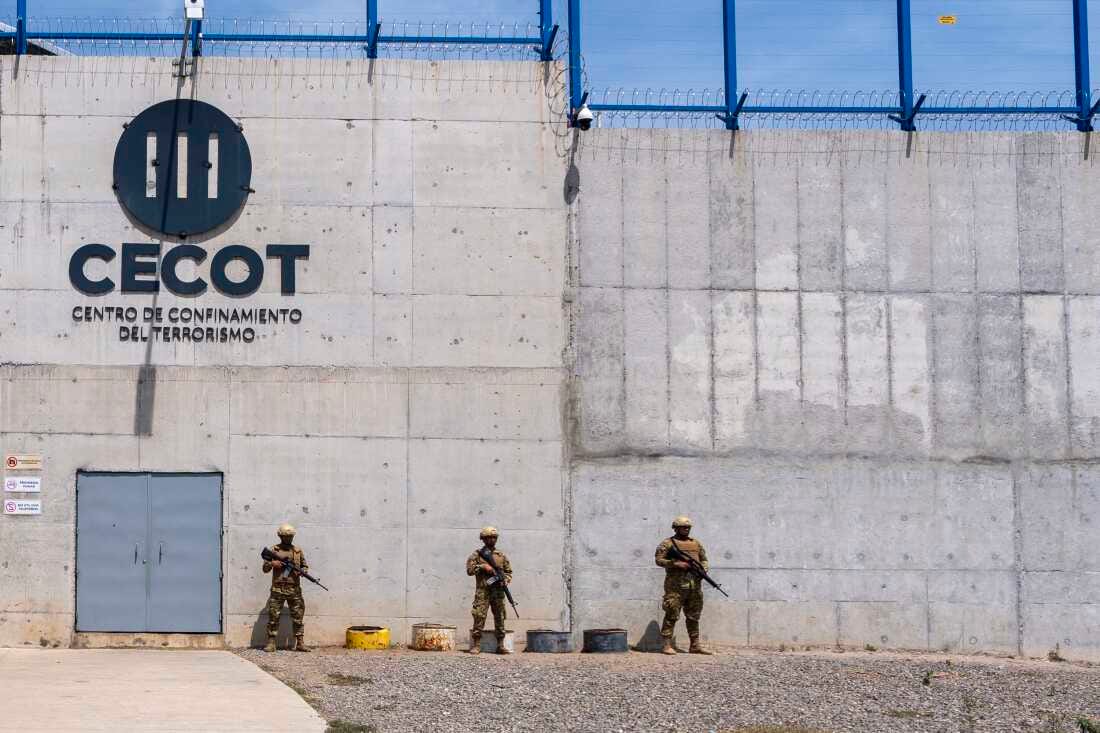
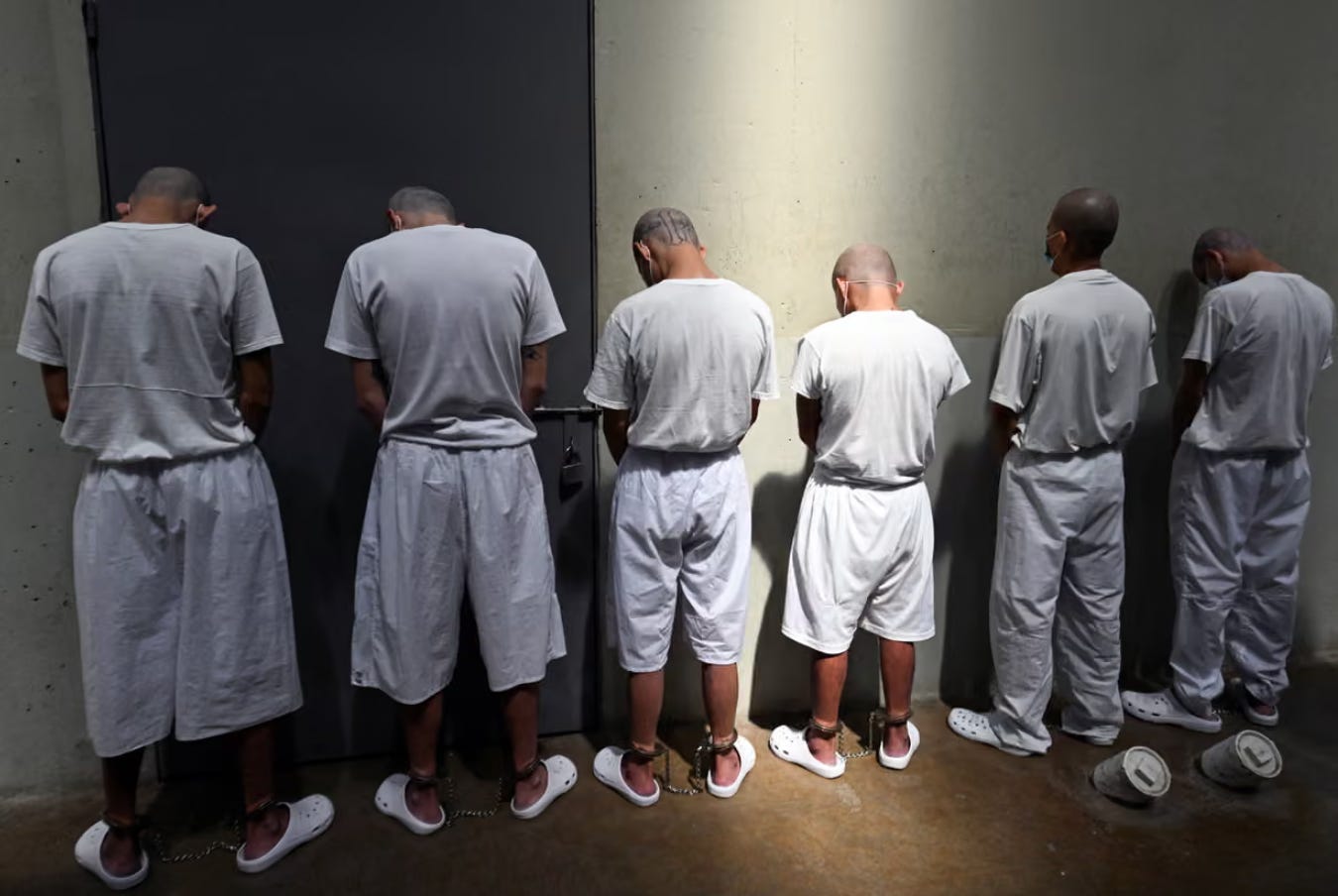
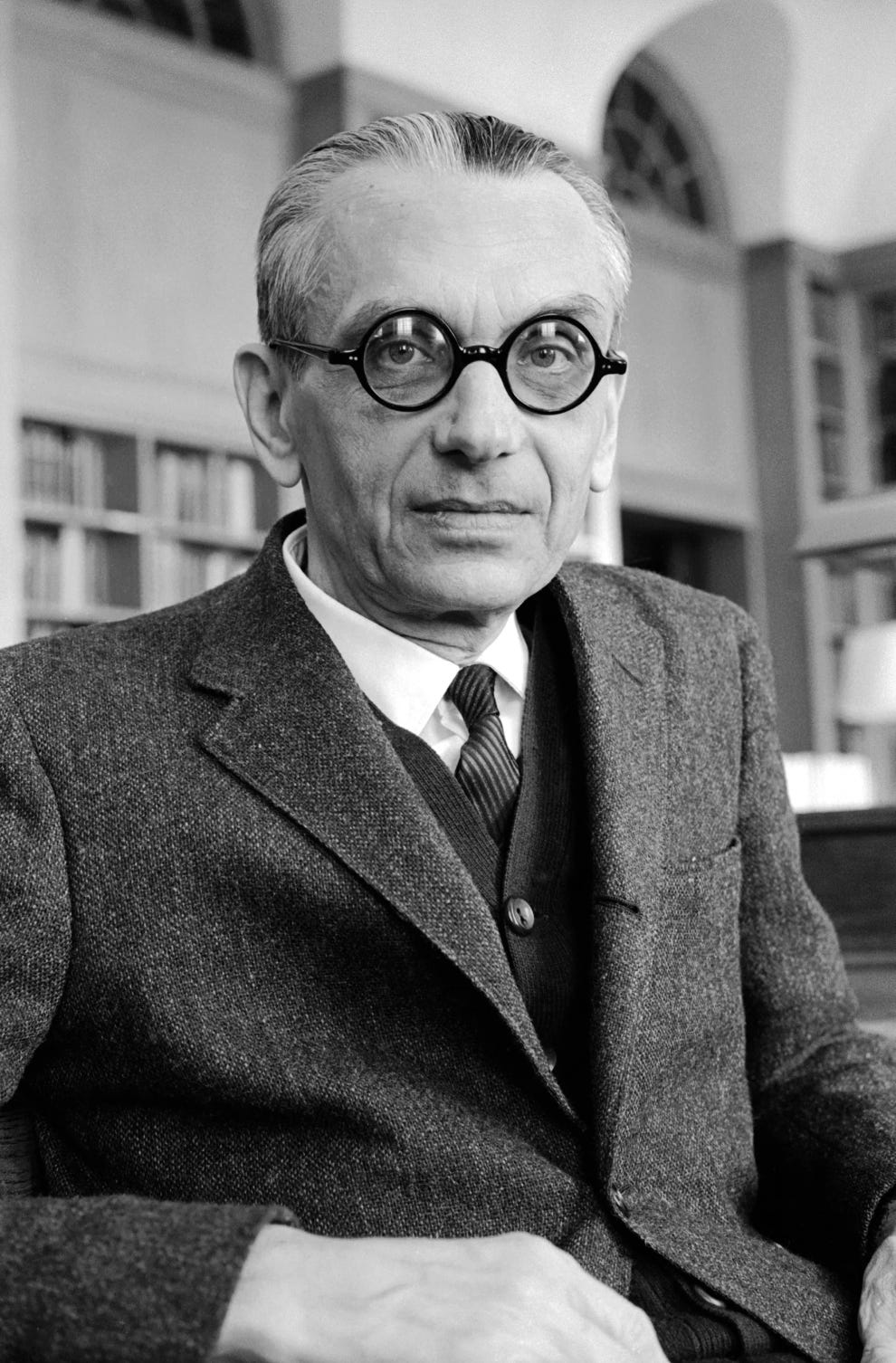
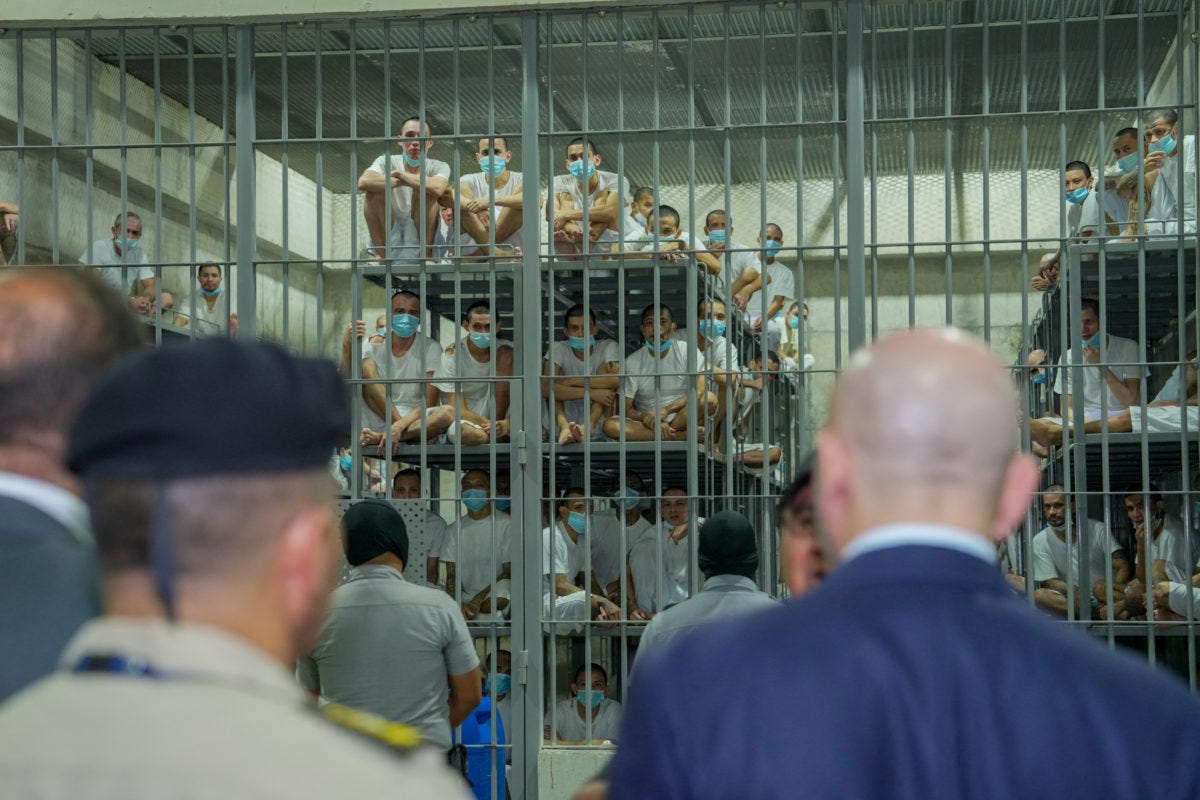
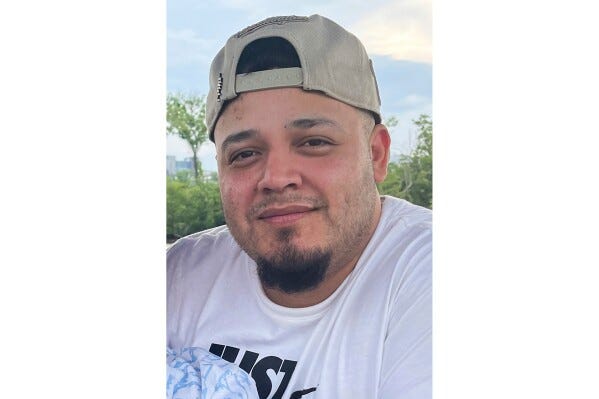
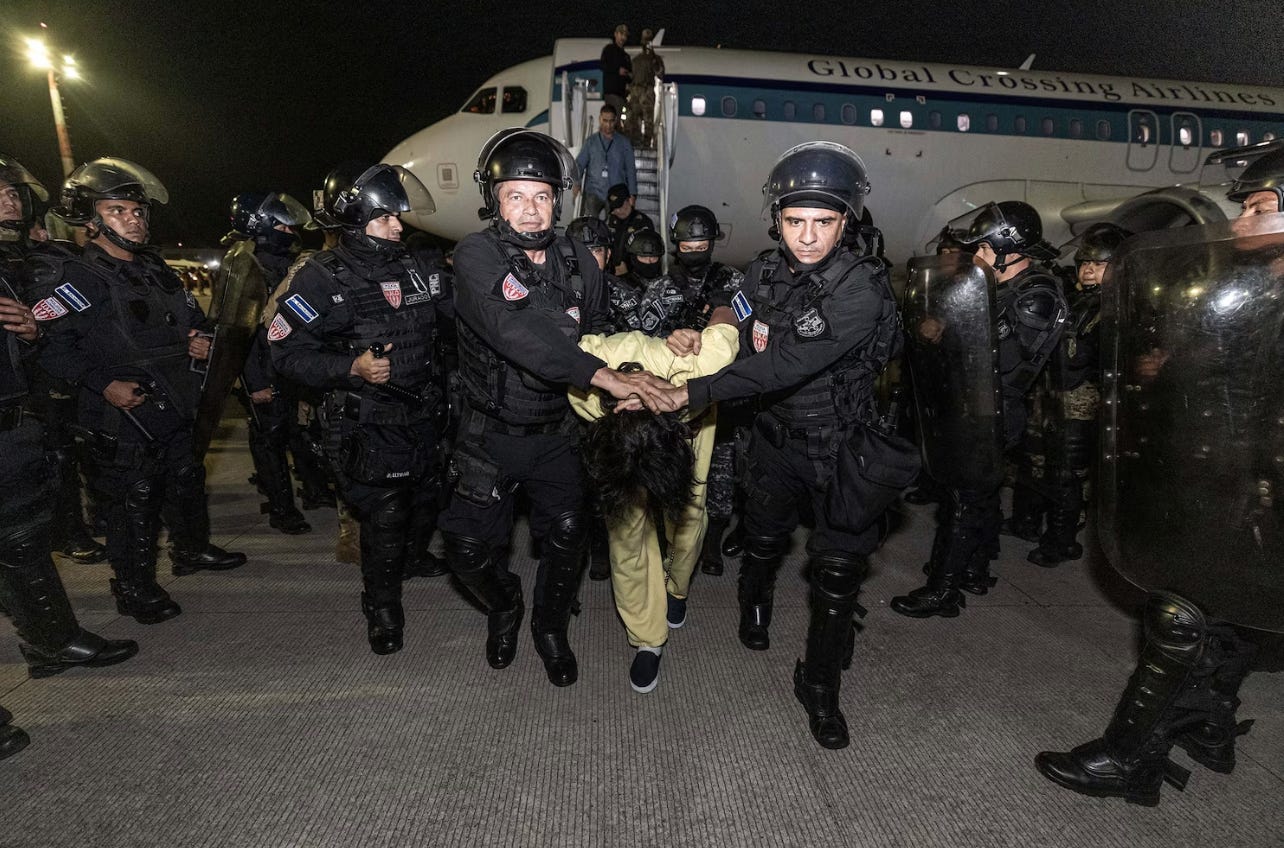
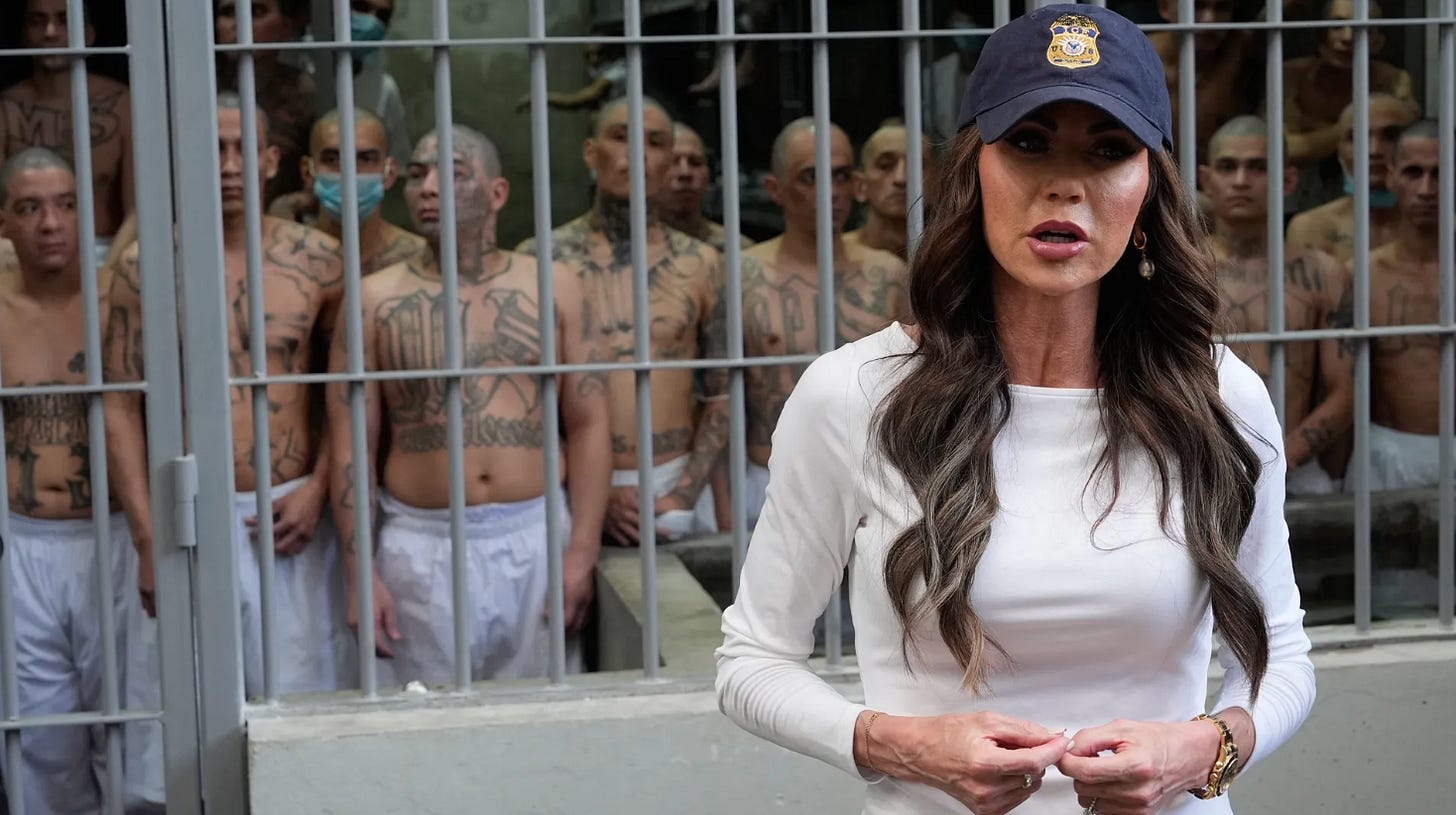

Thank you for this reporting. We need to hold our government accountable for this.
Thank you Gabe for the historical perspective, which has me thinking about the longterm consequences to our government. Reading these CECOT testimonies, as my blood continues boiling, I keep thinking: how do we help MAGA voters understand that the executive powers they’re celebrating today will inevitably be wielded by presidents they despise tomorrow? Not because I want anyone subjected to this horror, but because making this connection visible might be the only way to pump the brakes on these constitutional violations before they become normalized.
The challenge is finding messengers and examples that resonate. Perhaps veteran Republicans could speak to how quickly the tables turn. Maybe we need to be more explicit in our hypotheticals: “Imagine President AOC having the power to deport Proud Boys to foreign prisons without trial.” Or: “What if Biden had used these same powers against January 6th participants?”
Social media might be where this message gains traction… for instance explaining how surveillance laws passed after 9/11 ended up monitoring every American citizen for things unrelated to terrorism. Historical parallels that show the pattern: your team creates the weapon, the other team inherits it. Conservative libertarians who already distrust government power could be natural allies in spreading this message within MAGA circles.
The most effective approach might be focusing on local figures they trust—sheriffs, pastors, local talk radio hosts—who can frame this as protecting their own communities from future government overreach. “Do you really want to give President Newsom the power to disappear people without trial?” might land differently coming from someone they see as on their side. Because once these precedents are set, once courts validate deportation without due process, that becomes the law for every future president.
If we can mitigate MAGA voters’ lust for blood by convincing them it’s against their own self interests, can we perhaps save this country from sliding further down the dictator slope? I don’t know, but this is where my brain keeps going. I can’t think of any way of stopping this train to hell except by convincing people they don’t actually want what they voted for.